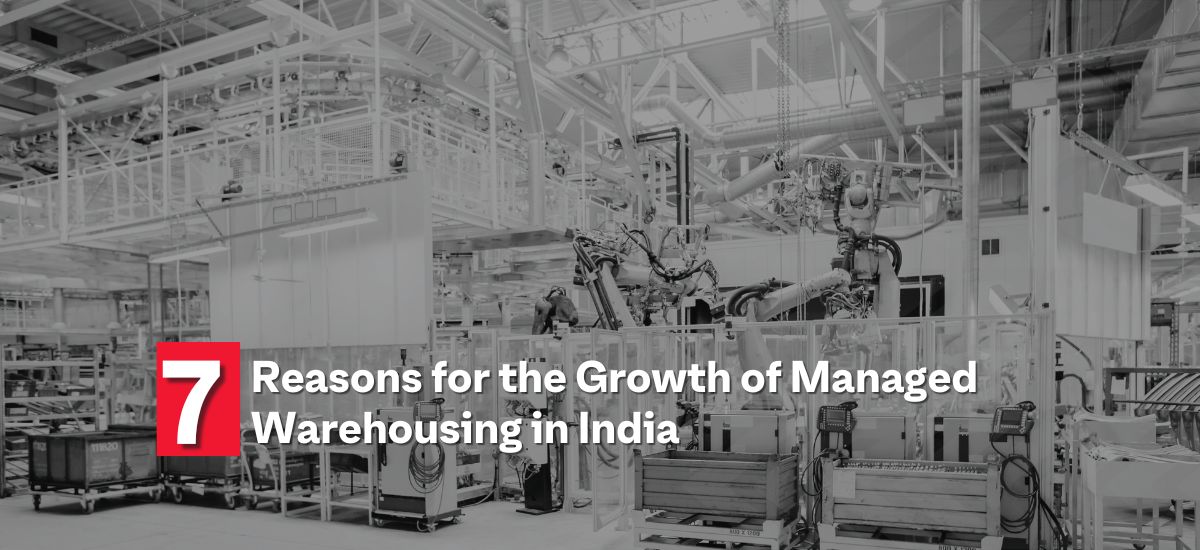Managed warehousing is growing in India due to seven key factors: the need to focus on core business functions, demand for operational expertise, expansion into Tier-2 and Tier-3 cities, rising adoption of digital visibility tools, e-commerce growth, stricter compliance requirements, and cost efficiencies through shared resources. Together, these shifts are reshaping how companies manage their supply chains.
India’s supply chain ecosystem is evolving faster than ever. As companies expand across geographies, strengthen their distribution networks, and adopt digital tools, they are increasingly moving away from traditional storage-based warehousing.
The result is a strong shift toward managed warehousing – a model where specialized partners run warehousing operations end-to-end with expert teams, processes, and technology.
Here are the seven major reasons driving this growth in India.
7 Reasons for the Growth of Managed Warehousing in India
1. Companies Want to Focus on Core Business
2. Need for Operational Expertise
Modern warehousing demands trained manpower, reliable processes, disciplined execution, and compliance.
Managed warehousing partners bring all of this as a ready system – ensuring accuracy, consistency, and predictable performance.
Instead of building capabilities from scratch, companies gain instant access to mature operational expertise.
3. Growth in Tier-2 & Tier-3 Markets
Consumer demand is rising in Tier-2 and Tier-3 cities, and brands are expanding aggressively beyond metros.
To support this growth, they need dependable partners with local infrastructure, local manpower, and regional operational knowledge.
Managed warehousing providers with multi-city presence deliver faster setups and smoother operations across these emerging markets.
4. Technology & Visibility Are Becoming Essential
Warehousing has become data-driven. ERPs, real-time dashboards, mobile apps, and analytics tools now give companies full visibility into inventory, movement, and performance. Managed warehousing integrates these technologies into everyday operations, turning warehouses into transparent, tech-enabled control centres.
5. E-commerce & Omni-channel Expansion
E-commerce growth continues to shape India’s warehousing needs.
High order volumes, fluctuating demand, regional fulfilment, and fast delivery expectations require professionally run operations capable of rapid scaling.
Managed warehousing provides the systems, processes, and manpower required to support multi-channel fulfilment with speed and accuracy.
6. Higher Standards of Compliance & Safety
Industries such as pharma, FMCG, and chemicals cannot afford operational lapses.
They need teams trained in regulatory standards, documentation, audits, hygiene, and safety protocols.
Managed warehousing ensures compliance is built into daily workflows – reducing risk and improving reliability for regulated sectors.
7. Shared Efficiency Lowers Cost
India’s shift toward managed warehousing is driven by a clear need: better efficiency, better visibility, and better control without increasing internal complexity.
As competition intensifies and supply chains expand across India, managed warehousing is becoming essential for companies that want to scale quickly while maintaining operational excellence.
For businesses looking for reliability, flexibility, and process-driven execution, managed warehousing is no longer an option – it is an advantage.

